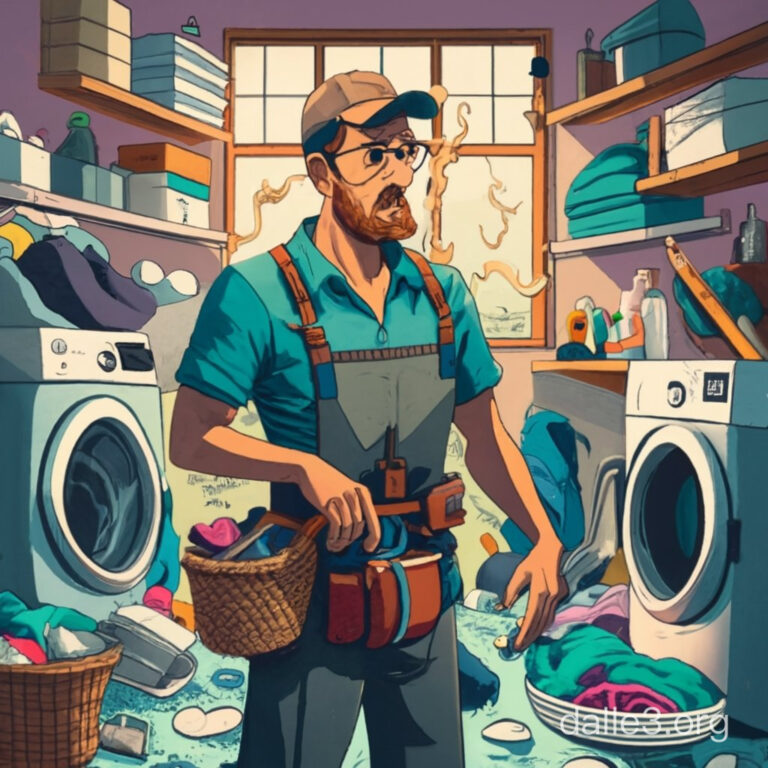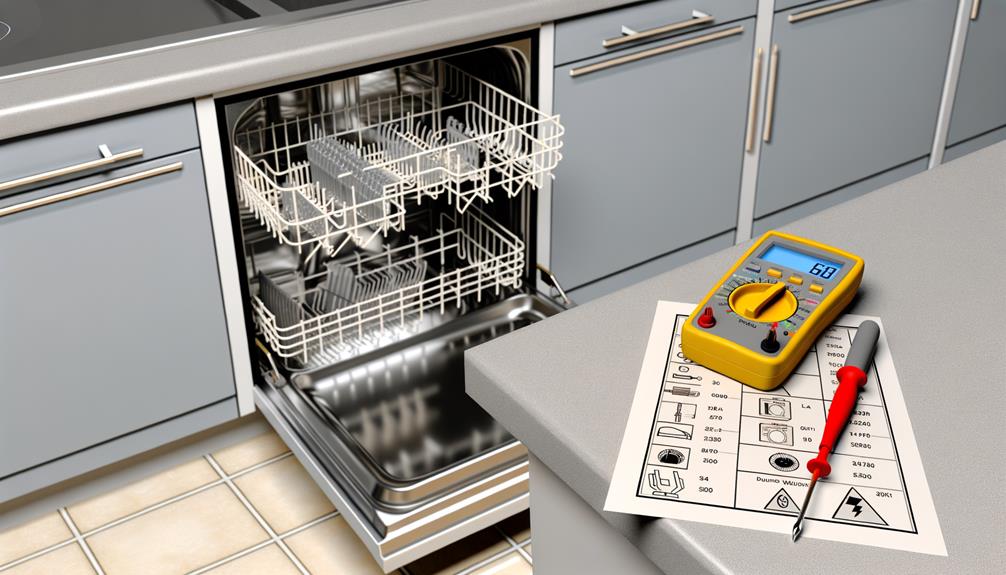
In today’s fast-paced world, a broken appliance can throw a wrench into your daily routine. Did you know that nearly 30% of household appliances start to malfunction within the first five years? When this happens, it’s common to feel a bit panicked. You might be standing there, manual in hand, second-guessing your next move, wondering if you’ll fix the problem or make it worse.
It’s critical to understand that while some issues with appliances are simple to fix, others need a careful and precise approach. When you’re facing an urgent repair, like dealing with a dishwasher that refuses to fill or a fridge that feels more like a hot box, it’s vital to make informed decisions rather than rushing to a solution.
The key to handling these situations is knowing when to dive in and when to step back. We’re here to guide you through the process. Keep reading, and we’ll share expert advice that will help keep your cool and possibly save your appliance too.
Recognizing Repair Urgency
When an appliance starts malfunctioning, it’s important to assess how serious the issue is to decide if you need immediate help from a professional. Understand the level of urgency; a minor glitch doesn’t always mean you should hurry to call for assistance.
However, if you notice unusual sounds, smells, or unpredictable behavior, these are definite signs that you need to act fast. It’s essential to recognize how critical the problem is; for example, if your fridge is too warm or there’s too much ice build-up, your food may not be safe. In such cases, the concern isn’t just convenience, but health.
Keep your cool, but don’t procrastinate. Ensuring the appliances you depend on are functioning properly is a key step in being prepared to help others. It’s important to prioritize safety and performance by responding quickly.
Initial Safety Steps
Before you begin addressing any problems with your appliances, it’s vital to prioritize your safety by either unplugging the device or turning off the gas to avoid any accidents. Taking these initial precautions is a key step in preventing dangerous situations. If you’re dealing with an electric appliance, disconnect it from the power source right away to avoid the risk of electrical shocks or fires. When it comes to gas appliances, it’s critical to cut off the gas valve; this move is necessary to prevent gas leaks which can cause fires or even explosions.
Now, let’s dive into why these steps are so important. Electricity and gas are powerful sources of energy that can cause significant harm if mishandled. By disconnecting your electric appliance, you’re doing more than just following a safety procedure; you’re actively protecting yourself and your home. With gas appliances, the risk of a leak is a serious concern. A gas leak in an enclosed space can be incredibly dangerous due to the risk of inhalation and the potential for a combustible atmosphere.
Remember that these safety measures aren’t just suggestions; they’re essential practices that can save lives. Whether you’re a seasoned DIY enthusiast or a newcomer to home repairs, understanding and implementing these safety steps is a non-negotiable part of the process. And if you’re uncertain about how to safely manage these energy sources, don’t hesitate to consult a professional. Safety isn’t an area where shortcuts should be taken.
When to Call Professionals in Emergency Appliance Repair Situations

After going over important safety measures, it’s time to think about when you should seek professional help with appliance repairs. If you run into complex problems, like issues with gas appliances or unexpected behavior that’s beyond simple fixes, it’s crucial to contact a certified technician. By doing this, you ensure that you’re not endangering yourself or invalidating your appliance’s warranty.
It’s important to understand that emergency appliance repair is about more than a temporary solution; it’s about making sure your appliances last and operate safely. If you’re facing a problem that seems too complicated, don’t hesitate to call in the experts. Trained professionals have the skills to pinpoint and fix problems effectively, which lets you get back to your daily life safely and with ease.
In today’s fast-paced world, appliances are more complex than ever, and fixing them can be a daunting task. Professional technicians are up to speed with the latest advancements and can handle the nuances of modern appliances. So when you’re stuck with an appliance issue, remember that you’re not alone. We’ve got you covered with top-tier service that will help you maintain your appliances for years to come.
And remember, it’s better to address issues promptly to prevent further complications. Now let’s move on to ensuring the safety and longevity of your appliances with the help of those who know best.
Proactive Maintenance Strategies
Regular maintenance is key to keeping your home appliances running well and avoiding unexpected repairs. You don’t need to wait for something to break; taking care of your appliances should be part of your usual routine. This method not only lowers your stress levels but also ensures that the appliances others rely on work without a hitch.
Make it a habit to inspect and clean filters, seals, and coils. Simple actions, like checking hoses for signs of wear and making sure appliances are stable and not wobbling, can prevent expensive repair bills and help your appliances last longer. Investing a small amount of time in maintenance now can help you avoid big problems in the future.
Taking these preventative steps is a straightforward way to keep your appliances in optimal condition. Instead of reacting to problems, you’ll be setting yourself up for a smoother, worry-free experience with your household machines. So embrace the practice of proactive care and enjoy peace of mind knowing you’re ahead of the game.
Smart Appliance Selection
While proactive maintenance significantly extends the life of your appliances, choosing the right equipment is just as crucial for ensuring long-term reliability and efficiency. To minimize the risk of appliance emergencies, invest in products known for their durability and performance.
Opt for appliances that have a reputation for needing fewer repairs and that come with access to high-quality replacement parts. This forward-thinking strategy pays off by helping you avoid the stress and cost associated with unexpected breakdowns. Remember, a higher initial investment in a robust appliance can actually save you money and time in the long run.
Always consider the long-term benefits when selecting your home appliances, ensuring you’re equipped to serve your household effectively for years to come.
DIY Troubleshooting Essentials
Before you reach for the phone to call a professional, it’s worth trying some basic troubleshooting steps to resolve common appliance issues yourself. Start by ensuring the appliance is plugged in and receiving power.
Next, inspect for any visible signs of damage or wear. Check filters and vents for blockages that could impede performance, and reset any tripped circuit breakers.
Remember, you’re not just a bystander; you’re capable of performing DIY repair tasks that can diagnose and repair problems without outside help.
Approach your appliance with confidence, knowing that many common appliance problems have simple solutions. If you encounter something you can’t fix, then consider calling for professional assistance. But often, a calm and methodical approach can save you time and money.
